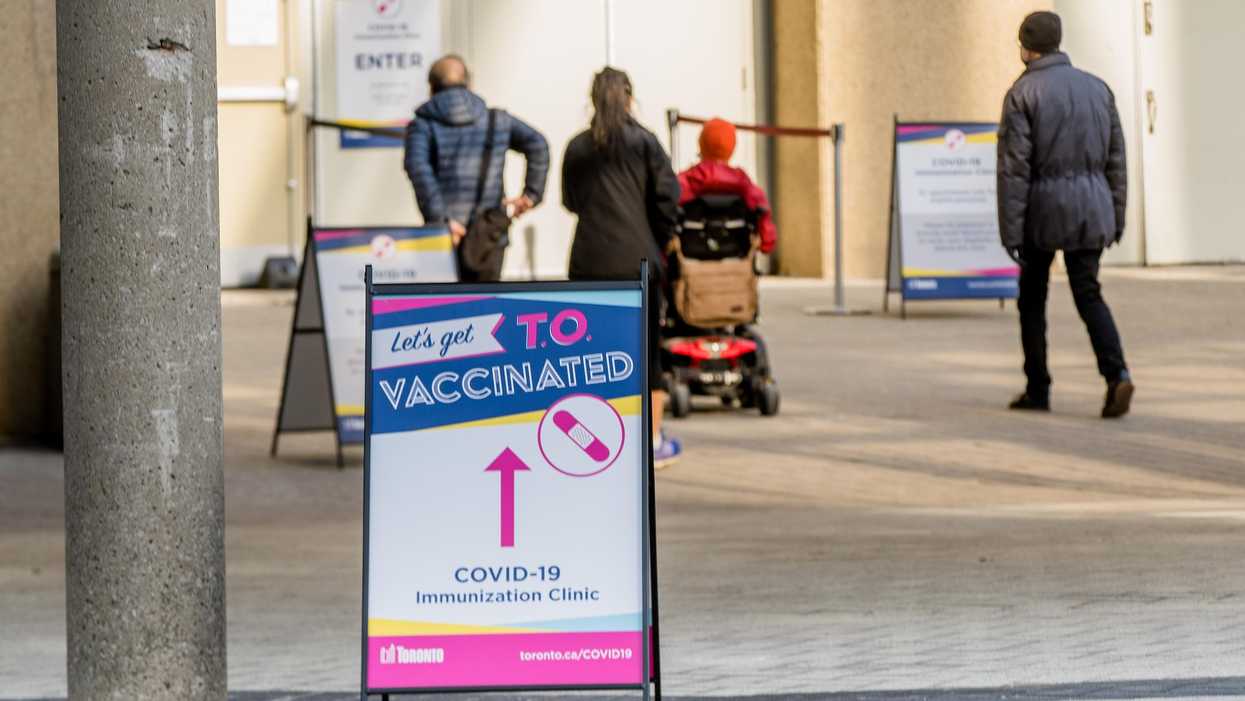Head Of Ontario's Science Table Shares When The Omicron Wave May Finally End
He says there is a "small window of opportunity" to change the definition of fully vaccinated.
While it seems like the COVID-19 pandemic has been a yearslong nightmare we all can't seem to wake up from, there may be a light at the end of the tunnel when it comes to the Omicron wave in Ontario, at least.
Narcity spoke with the scientific director of Ontario's COVID-19 Science Advisory Table, Dr. Peter Jüni, who shared some insight on the Omicron variant and whether or not the definition of fully vaccinated could still change.
"This wave will be over, I don't know when exactly, perhaps in six to eight weeks from now. So it's relatively safe to assume that we will be in a completely different spot end of March, which is good news," Jüni said.
The science table recently published its COVID-19 projections for the province, which determined that the current Omicron wave is either on a plateau or is in decline. The science table noted that a potential rebound in hospitalizations is expected after reopening, depending on community immunity (number of people with recent infection) or changes in contacts as of January 31, 2022.
It also stated that vaccination, including the third COVID-19 vaccine dose, gives "strong protection against serious illness." Jüni has suggested that Canada's definition of "fully vaccinated" should be changed to include three doses.
Jüni told CBC News on January 22 that expanding the term "fully vaccinated" to incorporate booster doses was "the next logical thing to do now with Omicron being dominant."
However, if the province waits too long, Jüni said it may no longer make sense to redefine the term.
"The challenge there is we're talking about a relatively small window of opportunity," he told Narcity. "If we would want to change the definition for vaccination from two to three doses, it only would make sense if we did it relatively swiftly now within the next few weeks, and this could be challenging from a political perspective."
Ontario eased some of its restrictions on January 31, including expanding gathering sizes and reopening indoor dining.
Jüni noted that the current timeline that Ontario has is "decent" but that the province needs to move into that next step "wisely."
"The next step after the January 31 reopening might need to be delayed if we see that we have too much of an upward trend in the parameters that we can look at," Jüni noted.
As it stands, the next time restrictions will be lifted is February 21, when gathering limits are set to increase to 25 people indoors and 100 outdoors.
According to Jüni, Ontarians "won't have any choice" in living with COVID-19, but there will have to be new ways to deal with ongoing infections.
"After this Omicron wave — once we've actually gone through it without losing control again, and having another peak with hospitalizations, and ICU admissions — the face of the pandemic will change. Why? Because most of us will have experienced some exposition to the virus, either through vaccination through infection, or a combination of the two."
This essentially means that the risk of ending up in the hospital becomes smaller. Jüni said this, along with the warmer weather and better access to drugs that can be used to treat COVID-19, like the anti-viral pill Paxlovid, should make things easier.
Health Canada has a robust website with all the latest information on COVID-19 vaccines and can answer any questions you may have.
This interview has been condensed and edited for clarity.
